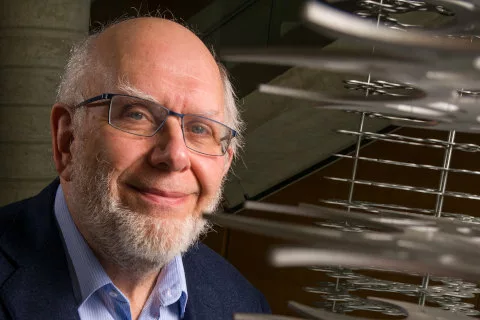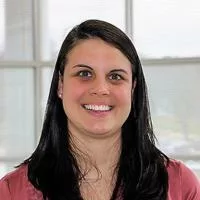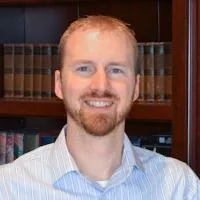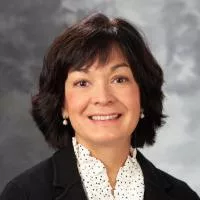Michelle Buelow Receives Max Fox Award
The annual award goes to a Wisconsin physician whose outstanding service as a preceptor has played an important role in the education of UW medical students.
During a November 2021 presentation about the University of Wisconsin Center for Human Genomics and Precision Medicine, director M. Stephen Meyn, MD, PhD, paused to reflect on how the term “rare disease” — which the National Institutes of Health attributes to any disease affecting fewer than 200,000 people in the United States — is a misnomer.
While each individual rare disease is not very common, there are thousands of them. We estimate there may be more than 10,000 altogether,” explains Meyn, the Jan and Kathryn Ver Hagen Professor of Translational Research and a professor in the Department of Pediatrics at the University of Wisconsin School of Medicine and Public Health. “In aggregate, rare diseases affect about eight percent of Americans and more than 450,000 people in Wisconsin.”

An internationally recognized clinician-scientist, Meyn studies Fanconi anemia, ataxia-telangiectasia, telomeropathies and other conditions involving genomic instability. He has done pioneering work demonstrating the utility of genome sequencing to diagnose and predict rare diseases.
Meyn urges awareness of the degree to which such disorders affect adults, as well as infants and children.

“About 75 percent of cases of rare diseases present in childhood, and 30 percent of individuals with a rare genetic disease will die before age 5,” he notes. “As a result, we tend to think of this as a pediatric problem, but most patients who have a rare disease will survive to be adults. They need to have their condition treated properly throughout their lives.”
In July 2021, the Center for Human Genomics and Precision Medicine launched the UW Undiagnosed Genetic Disease Program and its clinic, which accepts referred patients nationwide who have undergone extensive genetic workups but whose condition remains undiagnosed.
“Fewer than 50 percent of patients living with rare inherited diseases receive a definitive diagnosis, and the time it takes to diagnose them can take years of going from one specialist to another, getting the wrong diagnosis before finally getting the right one,” he says, adding that a patient’s diagnostic journey takes an average of five or six years and involves significant hardship.

The Undiagnosed Genetic Disease Clinic is housed at UW–Madison’s Waisman Center and is led by Meyn and April Hall, PhD, CGC, assistant professor of pediatrics, in collaboration with core team members Bryn Webb, MD, associate professor of pediatrics, and Derek Pavelec, PhD ’10, director of the Bioinformatics Resource Center in the UW–Madison Biotechnology Center.
Using genomic technologies and approaches such as trio genome sequencing, RNA-Seq, epigenomic profiling and metabolomic analyses, the team assesses patient samples for disease-causing genetic variants. With an approach that Meyn describes as “beyond the exome,” they employ DNA sequencing approaches that cover the eight to 12 percent of the genome that standard genomic analyses can miss. Then, high-powered scientific crowdsourcing commences as data are safely and securely shared with experts around the world via PhenomeCentral and the Undiagnosed Disease Network International.

“UW–Madison is becoming part of an international network of researchers and clinicians that focuses on rare genetic diseases,” Meyn says. “We’re working to give patients access to the latest technology and expertise here at the UW School of Medicine and Public Health, and also from this global community.”
The UW Undiagnosed Genetic Disease Program also has an important partnership with the Wisconsin State Laboratory of Hygiene.
“The initial genome sequencing is done on a research basis, but the confirmation of any findings is done at the Wisconsin State Laboratory of Hygiene, which is certified to do so. This is how we can return results to patients on a clinical basis,” explains Hall.
Cultivating such collaborations has been an essential function of the Center for Human Genomics and Precision Medicine since it was founded in 2018. The expanding ecosystem of genomics and precision medicine units at UW–Madison spans technical infrastructure, research and academic programs at the School of Medicine and Public Health, the UW College of Engineering and the recently established Center for Genomic Science Innovation. Scholars in the UW Law School and La Follette School of Public Affairs focus on developing precision medicine policies.

Meyn and colleagues also have established partnerships with other institutions such as the Hospital for Sick Children in Toronto, Canada; the Stanford Metabolic Health Center in Stanford, California; Rady Children’s Hospital in San Diego; and 10 children’s hospitals composed of the Sanford Children’s Genomic Medicine Consortium, based in Sioux Falls, South Dakota.
The Center for Human Genomics and Precision Medicine’s latest effort in rare diseases is a collaboration with the Division of Genetics and Metabolism in the UW Department of Pediatrics that resulted in creation of the UW Center for Rare Diseases. The center is co-led by Meyn and Kim Keppler-Noreuil, MD, professor, Department of Pediatrics, and chief of that department’s Division of Genetics and Metabolism — an international expert in the genetics/epidemiology of rare congenital disorders and somatic vascular and overgrowth disorders.

The Center for Rare Diseases provides comprehensive medical genetics, multispecialty services and state-of-the-art diagnostics and clinical trials for a broad spectrum of patients in Wisconsin and the rest of the United States who are living with rare diseases. In November 2021, it was designated by the National Organization for Rare Disorders as one of 31 Centers of Excellence in the nation.
“We are excited to join the Center of Excellence network, and with the National Organization for Rare Disorders, we are committed to providing comprehensive, patient-centered care,” Keppler-Noreuil notes. “This is an exciting step to advance medical breakthroughs, improve care planning, and support patients, families and physicians.”
The Center for Human Genomics and Precision Medicine has been increasing capacity through an expanded research facility and new investigators. In February 2020, the center and its laboratories moved into its new space of more than 9,000 square feet in a new section of the Wisconsin Institutes for Medical Research building. Soon, an additional 9,000 square feet will be added to University Hospital to support clinical research, clinical genomics and diagnostics. The center also has helped departments recruit 15 faculty members whose research programs are devoted to areas such as genome pathology and development of new diagnostic tests.
“This has been an exciting time with new faculty members developing programs, such as our Precision Medicine Research Service and planning our first Precision Medicine Symposium in 2022,” says Jacalyn McHugh, assistant director, Center for Human Genomics and Precision Medicine.

All of this work builds on a strong historical foundation in precision medicine. For example, the Precision Medicine Molecular Tumor Board at the UW Carbone Cancer Center provides a forum for clinicians, pathologists and scientists to discuss and analyze tumor genotypes and molecular abnormalities in order to recommend therapies tailored to individual patients. The board’s scope is unique.
“We’re not the only institution with a molecular tumor board, but we are one of only a few now handling cases statewide, and we were among the early ones to do so,” says Meyn.
The tumor board soon will begin providing expanded pediatric oncology consultations due to a new collaboration with the Hospital for Sick Children.
Having trained or been affiliated with eight different institutions throughout his career, Meyn points out that UW–Madison has unique qualities that can drive success.
He shares, “As far as our distinctiveness is concerned, we have strong international ties, which is unusual, and we’re pioneers of technology. We have a technological edge because we have such strong science on this campus.”